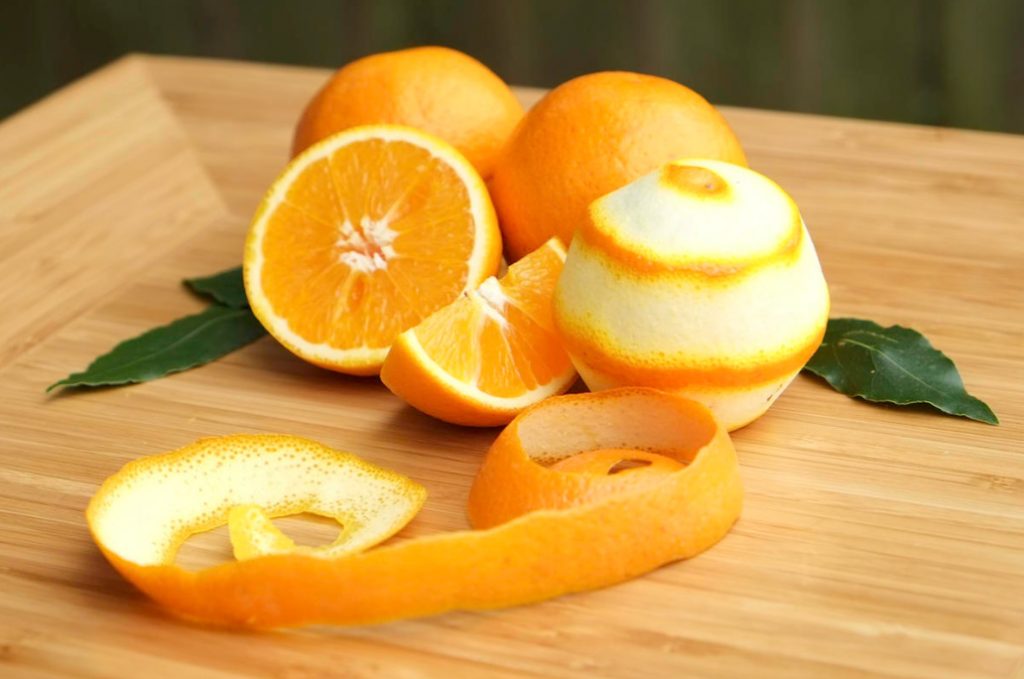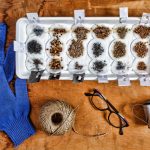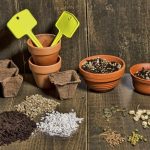8. Cockchafer
Will hurry to get away from the orange territory and may crunch larvae that eat up the tender roots of strawberries, do not disdain the roots of young seedlings and adore various root crops. The problem is solved easily: you need to add orange peels to the soil when preparing beds, make planting holes for seedlings and dig in the rows of strawberries.
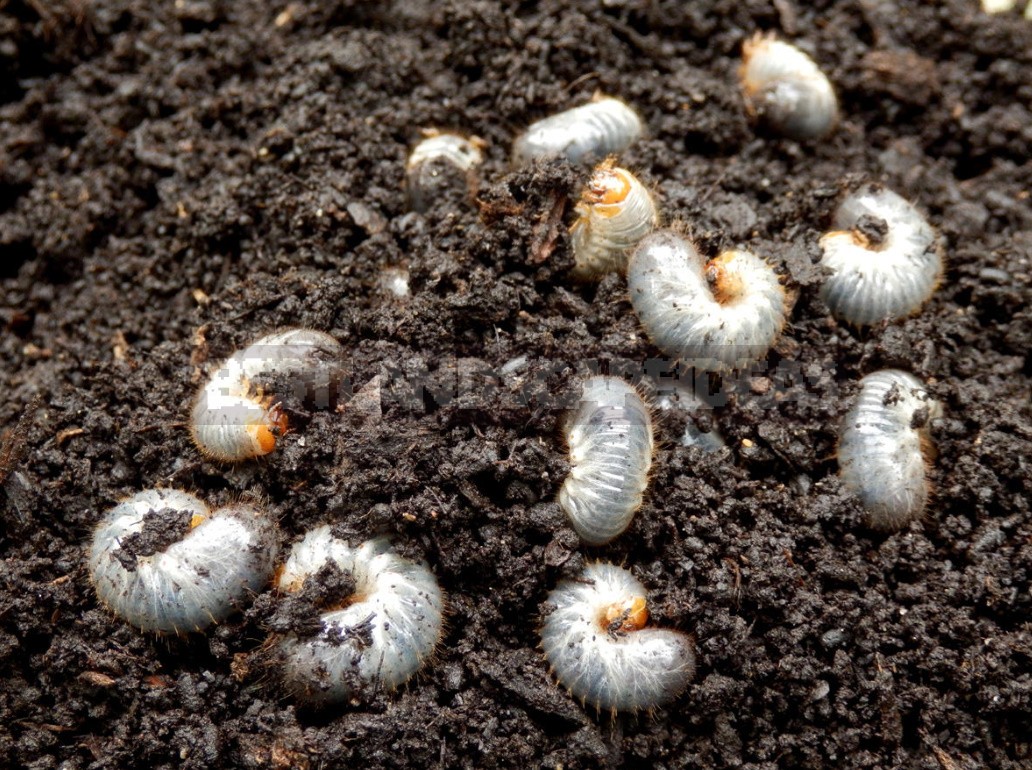
9. Slugs
It is believed that the unusual orange flavor misleads many mid-range insect pests, but not slugs. For these omnivorous creatures, the strange smell is especially attractive, so the peel acts as a bait. I found the following recipe: prepare a liquid slurry of dry crusts and water and put it in cut plastic bottles. Traps should be buried in the garden and garden so that their edges are at the level of the soil. The contents of orange traps need to be updated periodically: a huge number of drowned slugs will accumulate in the bottles. This, too, I intend to check in the summer, since it is very unusual that all pests are repelled by orange, and slugs are attracted. Mystery!
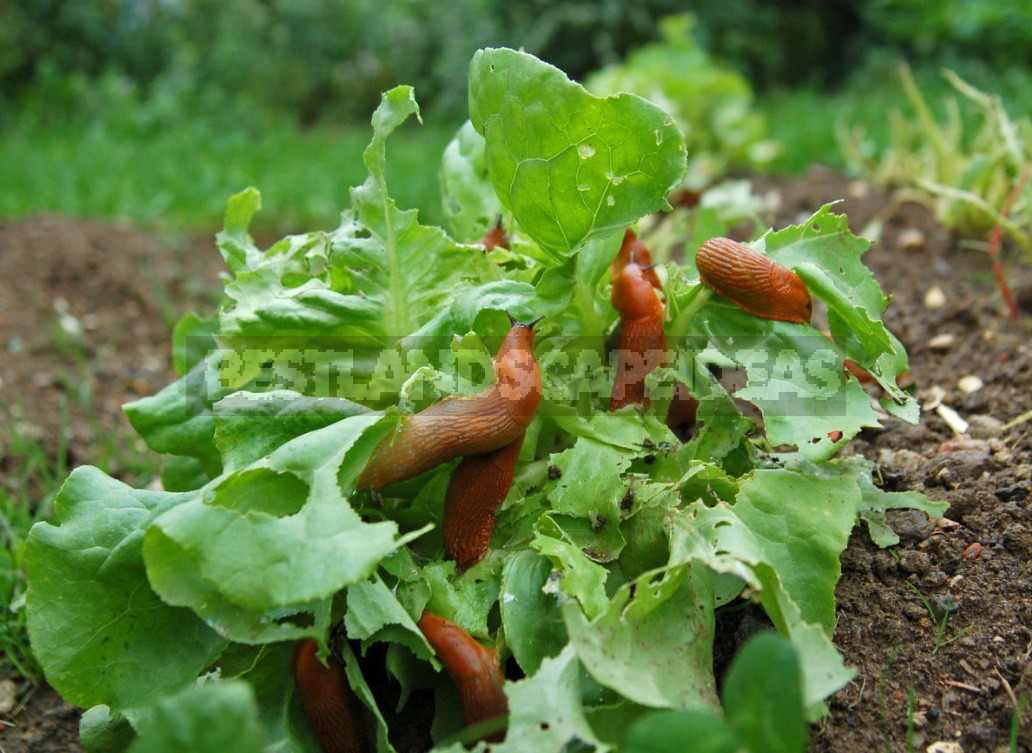
Just in case, still keep tested insecticides at hand, you never know what.
10. Furry pests
In the spring and summer, many of us have another pest – cats, their own and neighbors’. They often settle down to rest right on the bed, not noticing the precious shoots, or turn it into a latrine. It turns out that it is not difficult to scare off pranksters. You need to dig around the perimeter of the garden and in the aisles of fresh or dry orange peels-cats will not approach such a place.
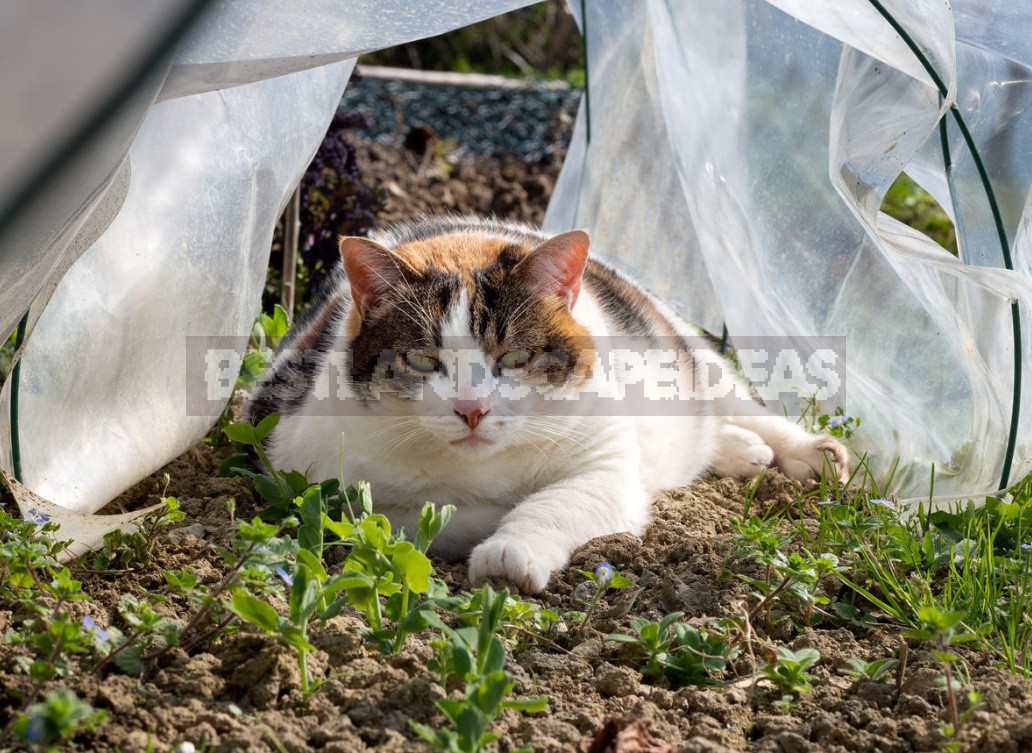
I checked the effect of orange peel at home: I took a fresh orange skin and splashed the juice in front of my cat’s nose. Offended, he ran away and avoided me all day! Checked, fresh crusts work. But there were reasonable doubts about whether the less fragrant dry orange peel, buried in wet soil, would work just as effectively.
11. Mosquitoes and midges
This is a tip for passionate fans of oranges, who even in the summer buy and take this fragrant delicacy with them to nature. Such comrades can forget about purchased repellents against mosquitoes and midges: you need to RUB fresh crusts on open areas of the body — the bloodsuckers will not be touched. But, in my opinion, Allergy sufferers should be careful with this tool. So we will write down the recipe in the category of doubtful.

12. Fertilizer
Various sources from the Internet claim that not only crops that are attacked by the above-described pests, but also all other plants, will fight for the right to settle on an orange bed. And all because the zest of oranges is a storehouse of useful compounds that will become a tasty morsel for plants after its rotting. To increase the fertility of the soil, you just need to dig up the peel of oranges in the garden or send them to the composter to get a more nutritious fertilizer. By the way, I have often met the opposite opinion that crusts should not be put in compost, but this myth has been debunked.
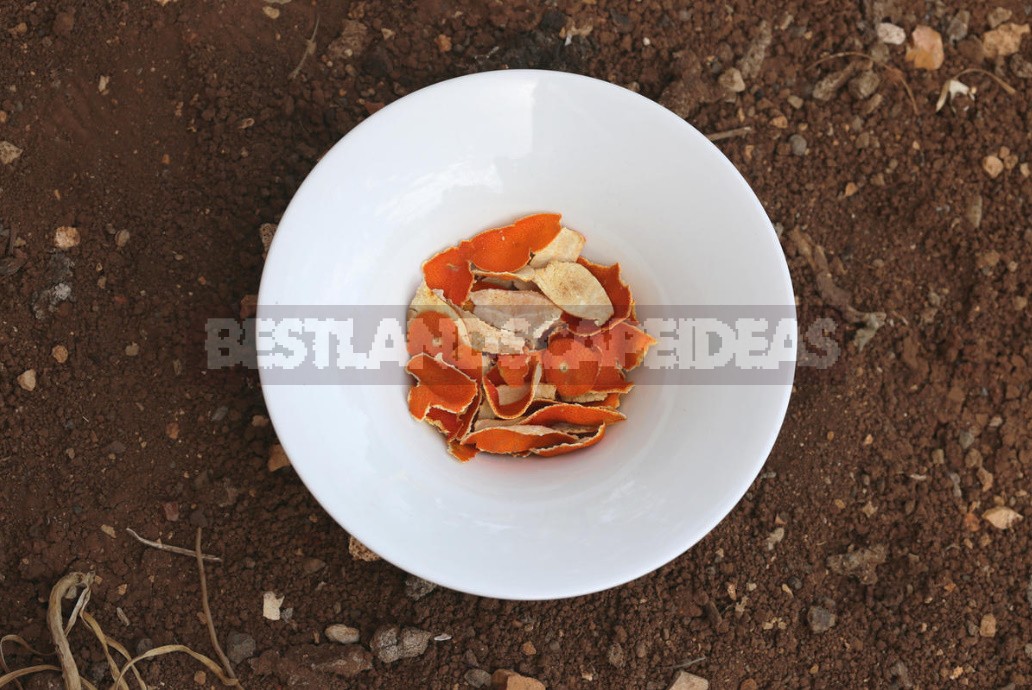
13. Flavoring for cottage cabinets
This simple method is familiar to me. We use the contents of cottage cabinets much less often, so they often have a musty smell. Getting rid of it helps orange peels, which just need to be spread out on the shelves among the things. Works, provided that you will regularly change the crusts.
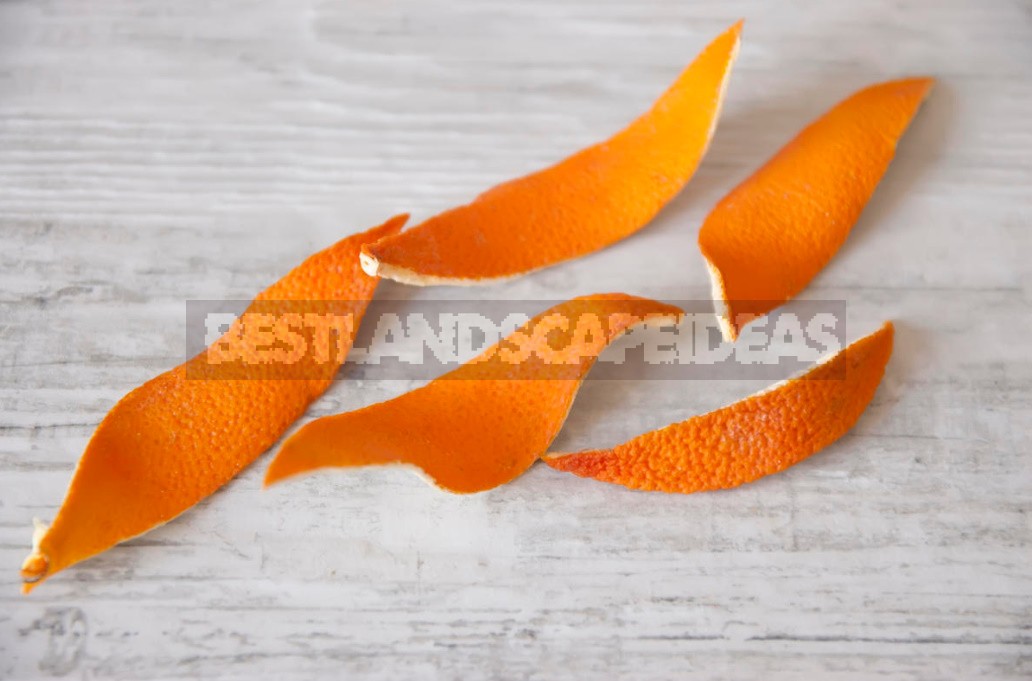
14. Outdoor toilet freshener
Orange peels promise to interrupt the “flavors” of the street toilet. The recipe for a homemade air freshener based on zest, found on one of the forums, it is quite simple. Fill 2 handfuls of dry crusts with 2 liters of water, add a couple of cinnamon sticks, ground cloves and vanilla if desired, and then boil the contents for 10-15 minutes over low heat. Pour the broth into a free container and leave on the floor of the toilet. And I also sinfully thought that if you add sugar, you will get a good refreshing drink. Only then the pot should not be taken to the toilet. But seriously, I would pour the liquid into a spray bottle and spray it as needed. For some reason, it seems to me that this will be more effective.
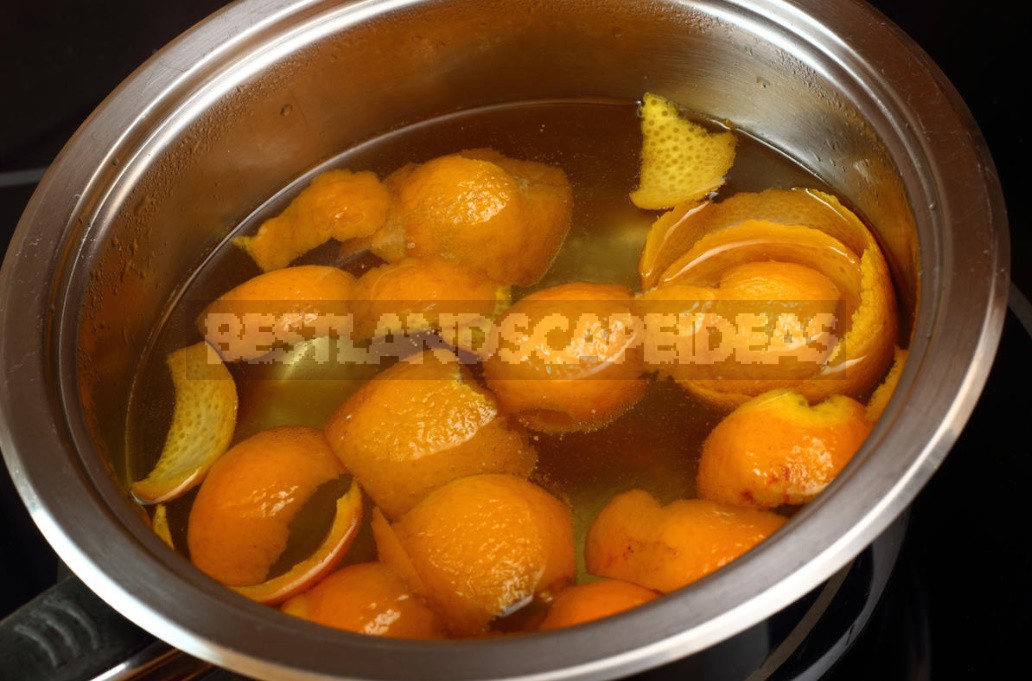
15. Means for ignition
You can also add dry orange peels to the fire or fireplace of a cottage house. This is the most unusual use of crusts that I have been able to find. Thanks to essential oils, the peel helps the flame to burn faster, fills the surrounding space with a wonderful aroma and lifts the mood. It seems to me that an attempt to ignite will be successful only if you use absolutely dry crusts, otherwise you risk Smoking the entire area. And the smell of raw singed zest will be specific.

Additional tricks
With the help of ubiquitous chemistry, producers today not only achieve unprecedented yields, but also increase the fruit’s shelf life to amazing terms. Therefore, oranges after purchase are advised to wash with warm water and soap, and then pour boiling water over them to clear the skin of harmful chemicals.
Crusts are more convenient to store and use in the future if you cut them into small pieces before drying. Dried raw materials should be kept in glass jars or plastic containers under a lid, so that essential oils do not evaporate prematurely.
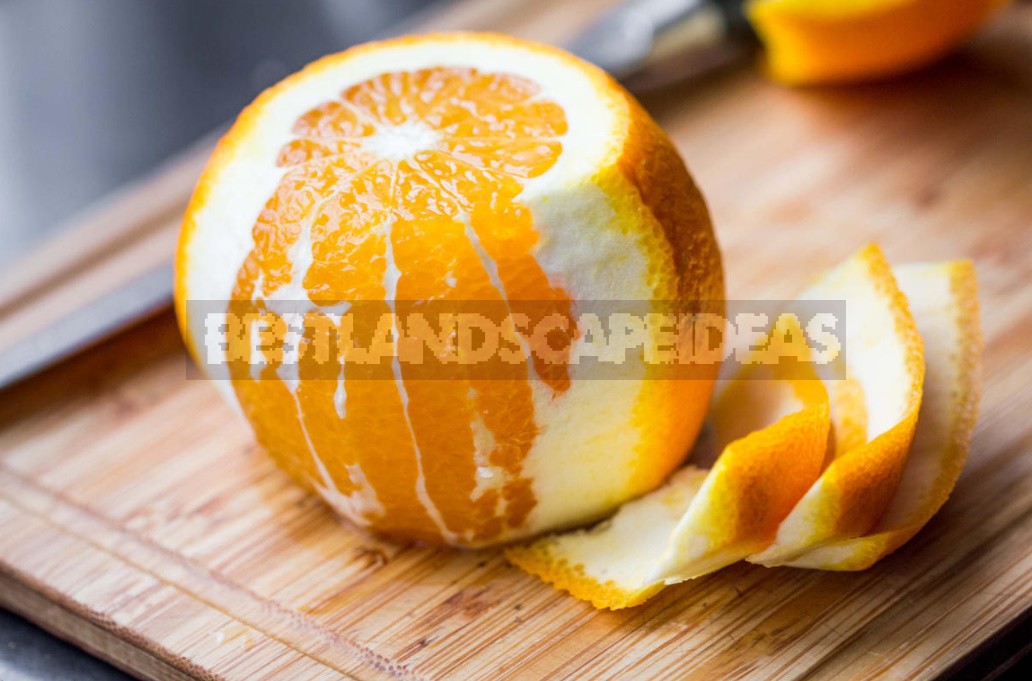
I think I got a real collection of orange tricks! I will definitely conduct citrus experiments on my cottage. But summer is so far away! Dear summer residents, can you satisfy my impatience now? Have any of you used orange peels in your cottage activities? Do these aromatic wastes help solve the problems described above? Or maybe you know about other ways to use this natural remedy? Tell us about your experience in the comments.
